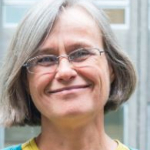
Valuing water in the Global South
Diana Mitlin, Professor of Global Urbanism at The University of Manchester’s Global Development Institute, discusses the issues the Global South face when it comes to accessing clean water.
Diana Mitlin is currently leading the African Cities Research Consortium. Her research, and that of her colleagues, explores how people living in the Global South continue to face issues around accessing clean water and how the COVID-19 pandemic has unearthed additional problems.
Global commitments to improving access to water have long been in place but it is evident that there are continuing problems in terms of access. One of the groups that is facing particular problems are the residents of informal urban neighbourhoods in towns and cities in the Global South. An estimated one in seven of the global population live in these areas.
Problems of affordability
Generally households in urban areas have to pay for water. There are shallow wells that provide some supplies without charge but in dense areas this water is likely to be non-potable.
The piped water through the public network can be too expensive for the lowest income households. World Resource Institute (WRI) data suggests that low-income residents in informal settlements may be spending more than 5% of their income on accessing the minimum quantities recommended by the World Health Organization (WHO). This finding is consistent with earlier research with affiliates from Slum/Shack Dwellers International in Malawi, Namibia, Tanzania and Zimbabwe.
The crisis of piped water affordability is in part because the benefits of subsidy regimes are captured by higher income households, as researched by GDI colleague Professor Dale Whittington. It is also because insufficient attention is being given to the realities of life in informal settlements.
Multi-occupancy households – generally caused by informal renting – mean that water bills move into higher tariffs (unit charges increase). Tenants renting informally from the land or structure owner generally pay a premium above the piped water charges to access supplies from the landowner. Even when the government provides a subsidy, they don’t benefit.
The economic consequences of the pandemic have exacerbated the problems that they face because incomes have fallen as well as the global demand for goods and services.
Diana Mitlin / Professor of Global Urbanism at The University of Manchester’s Global Development Institute
Without access to public piped water (either because the network hasn’t reached them or because there is no water in the pipes), households buy informally. They may buy from neighbourhoods with access (perhaps because they have sunk boreholes) or from informal neighbourhood enterprises.
The informal sector also collects water from the piped network (where it is available) and brings it to the local neighbourhoods. Buying like this is more expensive as even without profiteering, there are additional costs including transport charges. Tanker water was up to 52 times more expensive than piped water in the cities studied by WRI. Lucky households may be supplied by non-governmental organisations or other civil society efforts at a subsidised price.
Limited access to piped water
While access to piped water has improved, there are still those without. The WHO and UNICEF have reported that only 56% of urban Africa’s population have access to safely managed water; for the least developed countries the equivalent figure is 59%. In such a context what are the opportunities to access adequate supplies of affordable water?
These households have to buy from private suppliers, their neighbours in adjacent settlements with access to the piped network, or otherwise make do.
Even when there is access (either at the level of the plot or dweller or a nearby kiosk, pay-per-use meter or standpipe), it can’t be assumed that there is water in the pipe. In many contexts the piped water supply is intermittent. A recent study from the WRI that focused on 15 cities across the Global South highlighted that a consistent water supply (running throughout the 168 hours in each week) was only present in three of the cities. In two cities there was water for less than ten hours a week, and in a further four, water was running in the pipes between 10 and 83 hours a week.
Increasingly lack of access for households is exacerbated by water scarcity with limited municipal supplies, as researched by Dr Nate Millington from the University’s School of Environment, Education and Development.
The pandemic effect
The COVID-19 pandemic has increased the problems as the requirement for access to water for handwashing and other hygiene measures as an important risk reduction measure has increased. The economic consequences of the pandemic have exacerbated the problems that they face because incomes have fallen as well as the global demand for goods and services.
The pandemic has also challenged governments to reconsider their approach to informal settlements and the lack of basic services that threatens health and wellbeing. At the same time, many local organisations have redoubled their efforts to address local needs.
The Global Development Institute is working with civil society organisations in both the UK and Africa to understand how residents’ associations and their members in Kampala, Mogadishu and Nairobi have managed during the pandemic, and how co-production – collaboration between citizens and state – may offer new effective strategies to improve access to water and other basic services.
For more information, sign up to our African Cities e-news or follow us on Twitter.
African Cities Research Consortium
Discover how the £32 million African Cities Research Consortium fund will tackle complex problems in some of Africa’s fastest growing urban areas.
Read more
Global influence
Explore the international partnerships we’re forging to deliver solutions to global challenges.
Read more

